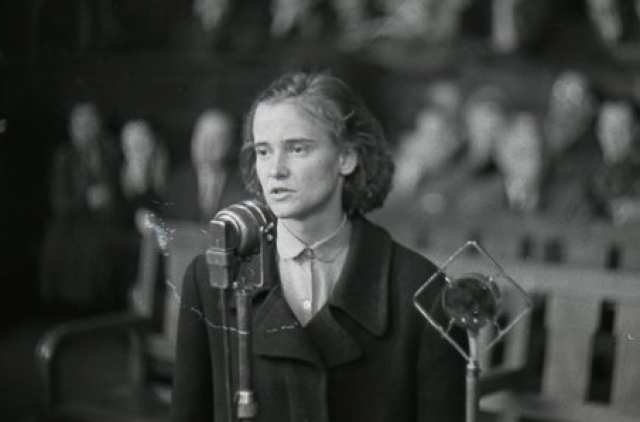24-year-old Ilona Tóth was sentenced to death in one of the most scandalous trials of the Kádár retaliation following the 1956 revolution and freedom struggle. Despite the confessions, based on many years of research, it can be said that Ilona Tóth and her companions could not have committed the murder they were accused of.
Réka Földváriné Kiss, the president of the National Memorial Committee, called it shocking and shocking that a 24-year-old medical student could be executed on absurd charges. He added: "Unfortunately, this was not an isolated case. The Kádár revenge machine manufactured the lawsuits for the ideological order. Ilona Tóth's is therefore not the only conceptual lawsuit. However, it stands out from the crowd because it was the first in time, which at the same time received the most publicity. It became the prototype for all other retaliatory concept lawsuits.”
Historian Sándor Kiss, deputy director general of the Institute and Archives for Researching the History of Regime Change, added:
In February 1957, the first-instance verdict was issued, on the basis of which Ilona Tóth was sentenced to death. The judge's name was Matild B. Tóth. At first he wanted to give him a life sentence, but he still sentenced him to death. When asked later,
as to why the verdict was changed, he answered "because the party asked for it".
Réka Földváriné Kiss, the president of the National Memorial Committee, shocking and shocking that a 24-year-old medical student could be executed on absurd charges. He added: " Unfortunately, this was not an isolated case. The revenge machine in Kádár was manufactured for the ideological order by the
Revealing the connections, Sándor Kiss pointed out: ten days after the first-instance verdict, János Kádár made a statement to foreign journalists. He talked about the atrocities committed by the defendants in the trial. He said: he feels very sorry for Ilona Tóth, but even more sorry for his victim, István Kollár. Thirty years later, in 1989, at the last plenum of the MSZMP, the topic of retaliation after the suppression of the revolution came up again. Károly Grósz was then asked what he knew about this case. He said: He spoke with Comrade Kádár several times about the trial. He was informed that the party did not intervene in the court's decisions. However, Kádár mentioned only one case. He talked about how in 1956 there was a warehouse worker who was killed with particular cruelty by a female doctor. They did not want to sentence the murderer to death. This is where the case of Ilona Tóth comes back - said Sándor Kiss. He added: So Kádár still intervened. As he put it: "it is also interesting that neither Grósz nor Kádár mentioned the name of Ilona Tóth. By then, they've probably forgotten."
Réka Földváriné Kiss added: the system also wanted to show foreign journalists how brutal and cruel the "counter-revolution" was going on in our country.
The Soviet troops had to crush this because otherwise fascism would be unleashed in our country. That is why this was the main trial of Kádár's self-legitimacy. He wanted to prove that the lumpenproletarian strata and the intelligentsia united against the worker-peasant power as brutally as possible. That's why he was accompanied by a huge media campaign and why the confession was necessary.
Réka Földváriné Kiss called the sources incomplete, since we inherited them from the revenge machine in Kádár. However, he called it quite certain that "the Soviet authorities and their secret service were here, which is also hinted at."
Sándor Kiss said: in 2008, he was visited by medical professor Géza Jakó, who in 1956 was a surgeon at the Péterfi Hospital where Ilonka Tóth also worked. He thanked us for proving that Ilonka Tóth is not a murderer. A doctor's job is to protect the patient. You cannot kill under any circumstances. In 1989, they tried to reverse this principle based on ethical behavior against Ilona Tóth once more.
What is at stake here is the moral stance of young Hungarian intellectuals.
When asked why a death sentence could be handed down in the case when the judge did not want to pass it, Réka Földváriné Kiss answered: the two people sitting on the pulpit interpreted the political will.
Source: hirado.hu
Featured Image: Wikipedia












